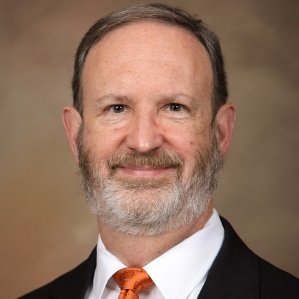Commentary on Hebrews 12:18-29
“This is your final warning!”
These words, full of gravity and danger, are familiar from television and film or perhaps from our own experience as children or as parents. These bracing words tell us that we have reached a limit, that immediate action is required to change course. Our current path will bring consequences.
In some sense, these words of sharp rebuke are also an apt heading for this passage from Hebrews. Throughout this written sermon, the author has been warning us against neglecting our salvation (2:3), hardening our hearts (3:7–4:13), falling away (6:4-7), and shrinking back (10:38-39). As he comes to the end, he issues one last warning.
As he has done before (2:1-4; 3:7-4:13; 10:38-39), the writer uses a contrast to develop his warning. Here two mountains, Sinai and Zion, form the basis of comparison. The writer reminds us first of the experience of the Israelites at Sinai: the flames of fire, the mist and gloom, the trumpet blast, and a Voice too terrible to endure (12:18). Drawing on later Jewish interpretation of the event in addition to the Pentateuch, the writer informs us that fear extended from the people to include their leader Moses as well (12:21).
But we have not come to worship at this frightening, inaccessible, isolated mountain. Instead, we have come to Mount Zion, the heavenly Jerusalem (12:22). A marvelous company gathers in this city of the living God. There are countless angels who have come to join in celebration and worship. There is the congregation of the first-born, the brothers and sisters of Jesus the firstborn (1:6). There is a judge, one who is God of all. There are the spirits of righteous people, the godly dead. There is Jesus, who mediates a new covenant (8:6-13), making possible a new access to God and divine blessing. Finally, there is the sprinkled blood of Jesus that seals the new covenant and proves effective for reconciliation in contrast to the blood of Abel that cried out for vengeance (Genesis 4:10-11).1
This contrast (12:18-24) underscores the advantages we gain from the new covenant Jesus makes possible: a new access to God and communion with others in a vibrant city of joy. With these benefits in view, the writer turns to the heart of his admonition. We must not disregard the One who speaks to us, warning us from heaven (12:25). The Israelites did not escape God’s word spoken on earth (12:25-26). How much more ought we to listen now that God speaks from heaven! At Sinai, God’s voice shook the earth. But now God’s voice shakes both earth and heaven, as promised to the prophet Haggai (12:26, quoting Haggai 2:6).
Elaborating this point, the writer interprets the prophetic word to refer to a global destruction of created things (“what is shaken”) so that eternal things (“what cannot be shaken”) may remain (12:27). Here he returns to a theme he introduced at the beginning of the sermon: the earth and the heavens God has created will wear out like clothing that must be changed, but God is constant and eternal (1:10-12, quoting Psalm 102:25-27).
For us, this shaking is a moment of crisis that reorients our lives. As a result of this process of judgment, we lose the things that can be shaken–all that is temporary or ephemeral. But in the midst of such cataclysmic trial, there is good news because that which cannot be shaken abides.
Most importantly, what abides is God’s unshakable kingdom (12:28)–a kingdom we are receiving even now due to the new and living way to God that Jesus has opened for us (10:20). That awareness leads to joy and thankfulness because we participate in the eternal realm and reign of God. Through our participation in that kingdom, we may worship God aright, with reverence and awe (12:28), knowing our God is a consuming fire (12:29) who burns away the ephemeral things of our lives and purifies the precious gold that abides.
This final word suggests that we may reflect on the entire passage through the lens of our own life of worship. Like the first readers of Hebrews, we do not come to stand at Sinai as we gather for worship. Instead, as we journey toward the heavenly Jerusalem, our worship provides, in Fanny Crosby’s words, “a foretaste of glory divine.”2 Our worship is preparation for our life in the city of God, for as we worship that life breaks open to us even in the midst of time and space.
Such worship does not foster a craven fear isolating us from God and each other. Instead it provides access to God and celebratory participation in community. Worship connects us with God, with angels, and with the saints past and present who comprise that “great cloud of witnesses” (12:1) encompassing us. Jesus’ mediation of the new covenant makes possible our access and communion with God and moves our hearts to thanks and praise for the grace we have received.
Yet that thankfulness does not end in an easy familiarity with the divine. While we move forward with courage instead of shrinking back, we nonetheless approach the Holy One with reverence and awe. The goal of our worship is not entertainment, nor do we consume worship as a commodity. To worship is to encounter God, to hear God’s voice, to be transformed. True worship does not leave us as we are, at ease with illusions of our own power and significance. Rather, it makes us aware of the impermanence of all human lives and institutions as we bow in awe before the permanence, might, and splendor of our God who is a consuming fire.
1For detailed discussion of this list, to which I am indebted, see William L. Lane, Hebrews 9-13 (WBC 47B, Dallas, TX: Word Books, 1991): 464-74.
2Fanny J. Crosby, “Blessed Assurance, Jesus Is Mine.” See Don E. Saliers, Worship as Theology: Foretaste of Glory Divine (Nashville: Abingdon, 1994).

August 22, 2010